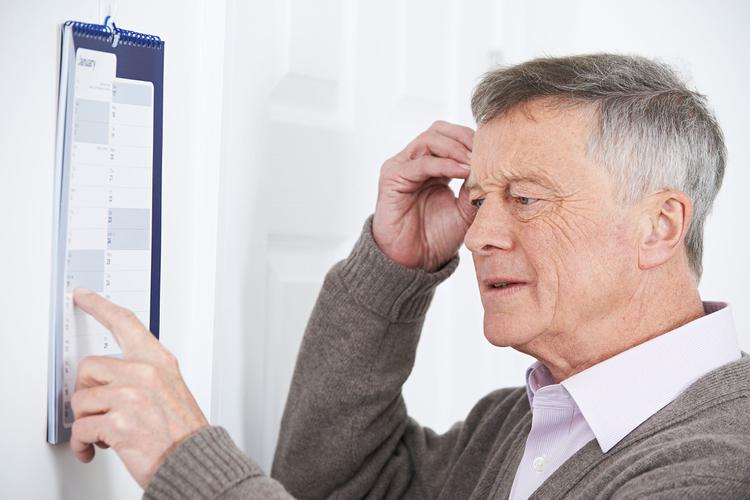
Dementia and Ayurveda
Dementia is a neuro-degenerative disorder that causes impairment in cognitive functions. It is not a specific disease in itself, it is a term used in broad sense to describe many symptoms that is associated with the decline in memory in a severe manner such that it interferes with the everyday life. Though this disorder is not a normal part of ageing, this affects old aged people more. A statistics states that one dementia patient is diagnosed every four second.
What are the symptoms of Dementia :
There are varied symptoms according to the stage and type of the disease and effects of this disorder is slow and progressive. When the patient is showing the symptoms, it has been long time the brain was processing this defect for a long time. The areas affected are :
- Memory – Misplacing things, asking same question repeatedly, thinking the old memory as new one, considering that an incident happened when it is not, confusing people etc.
- Visual- spatial perception- they may imagine or see/hear things what others donot.
- Attention – lack concentration and attention on simple things
- Problem-solving skills – can’t handle abstract concepts, money etc.
- language – can’t find familiar words, no coherent thought,
- Personality – behavioral changes, wandering, restlessness, becoming wild in social situations.
Ayurvedic view of Dementia :
In Ayurveda, the mind is considered to be the superior of all senses. It is the sixth sense – that provides human beings the sense of discretion and coordinating ability. Without this, the five senses are incomplete or inadequate. In Vedic tradition the standpoint was – I am( have a soul and exist) and therefore I can think. But with the development of rationalism, the stand has changed to ‘I think and therefor I am’.
Today we can’t deny the fact that there is commercialization at every stage and the human capabilities are exploited to the fullest. There is a rapid over-use of the senses and exhaustion of mind. Due to increase in rationalism and mind-based existence, there is a misuse of our mind faculties. This trend has ignored the body and also hindered the natural mental development.
Growing numbers of Dementia threat is a best evidence for the above mentioned factors. According to Ayurveda, the thinking process has three qualities – (guna)
- Rajas – mental activities like planning and organising
- Tamas – that which hinders actions. It also include negative thoughts that hinder our development
- Sattva – the quality that balances the above. The state of stillness and peace.
In general, the mind is in good co-ordination and active, when there is an imbalance, the mind shifts to Tamas state or inaction. As Ayurveda states there are three vital energies that account to the balanced bodily functions. Vata energy is the one responsible for functions related to movements, blood circulation and brain and nerve functions. The imbalance in Vata leads to many conditions. Charaka has described 84 prominent ones in Sutrasthana. Out of which brain related disorders are –
- anavasthitchita – instability of mind
- atipralap – frequent delirium. (nonsensical, confused talk)
- Frequent pain in temporal regions of the body.
Excessive imbalance in Vata leads to
- gyanbhranti (misconception)
- chittabhrama (delusion),
- chaitnyanasha (destroyed awareness and consciousness).
Excess imbalance in vata would lead to delirium and then Dementia.
Dementia treatments in Ayurveda :
Ayurvedic treatments include therapies and herbal supplements.
- Oral medications for brain and nerve strengthening
- Massages with medicated oil – shirobasti/ shirodhara.
- Nasya treatment. opening the channels via nose thereby improving oxygenation and functioning of nerves in brain
- Meditation / Yoga to calm down the senses and meet a balanced thinking.
- Hyper-hydration in head region through massages.
Prevention of Dementia :
Any disorder don’t appear suddenly in our body. It is necessary for us to be aware of the preventive measures and risk factors of our simple routine. That too for a dreadful condition like Dementia, that takes a pandemic proportions, it is necessary for us to understand the risks. They are multi-dimensional. ‘Prevention of Dementia with Yogic and Ayurvedic Methods’ by Vinod Verma states 12 risk factors to be aware of –
- Excessive and Negative Use of the Senses
- Incorrect Shoulder and Neck Posture
- Incorrect Breathing
- Nasal Blockages.
- Chronic Cold, Excessive Mucous in Head Region and Sinusitis
- A Chronic Imbalance of the Body’s Vital Energies Called Vata
- General Body Weakness, Frequent Bouts of Fatigue and Exhaustion
- High Blood Pressure or Hypertension
- Constant Mental Tension and Feeling of Helplessness
- Shocks and Traumas
- Dwelling on the Past and Fearing the Future
- Hopping Thoughts
‘It is never too late or too early to improve the quality of your life’- Contact us today for more information!







